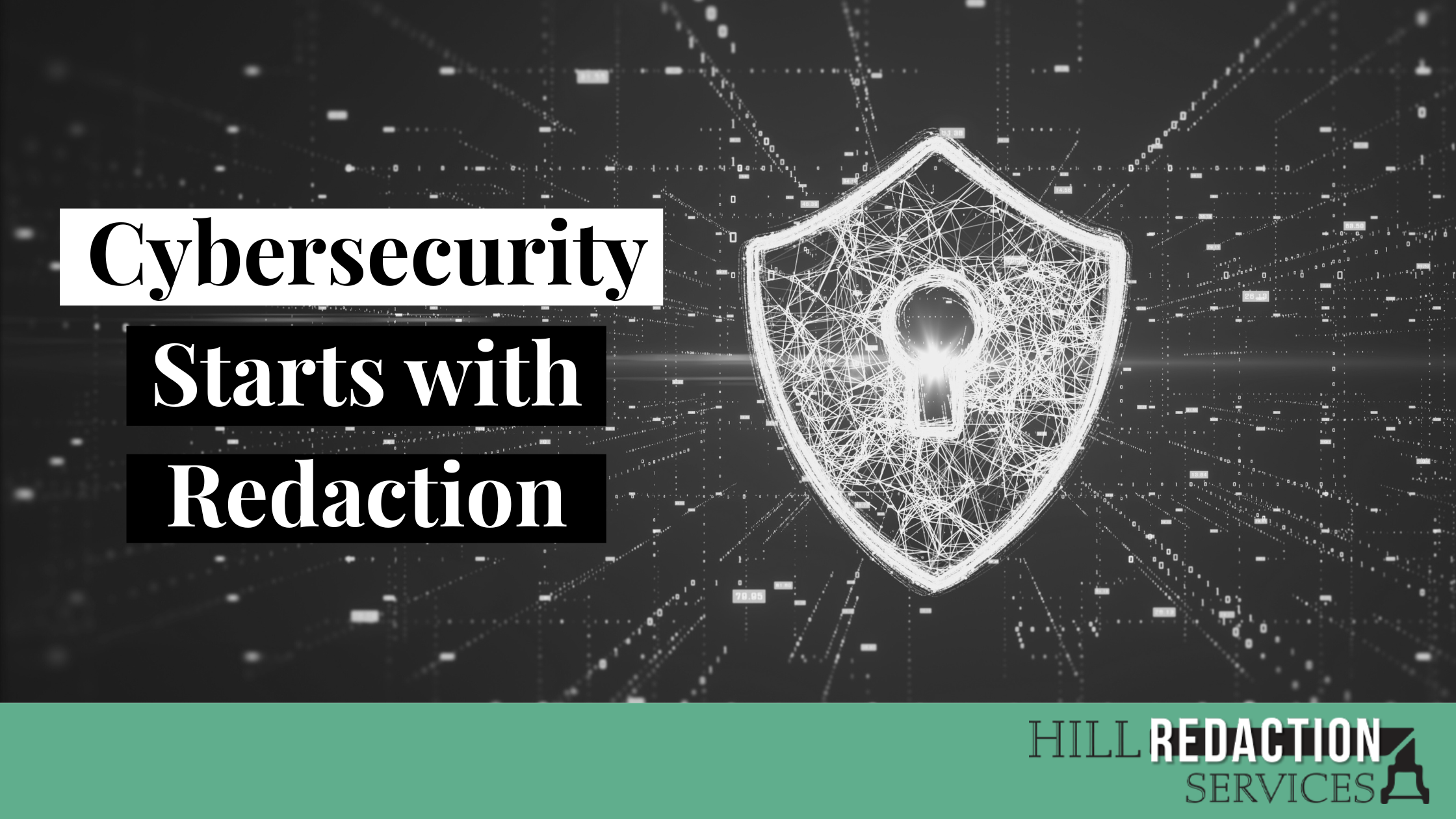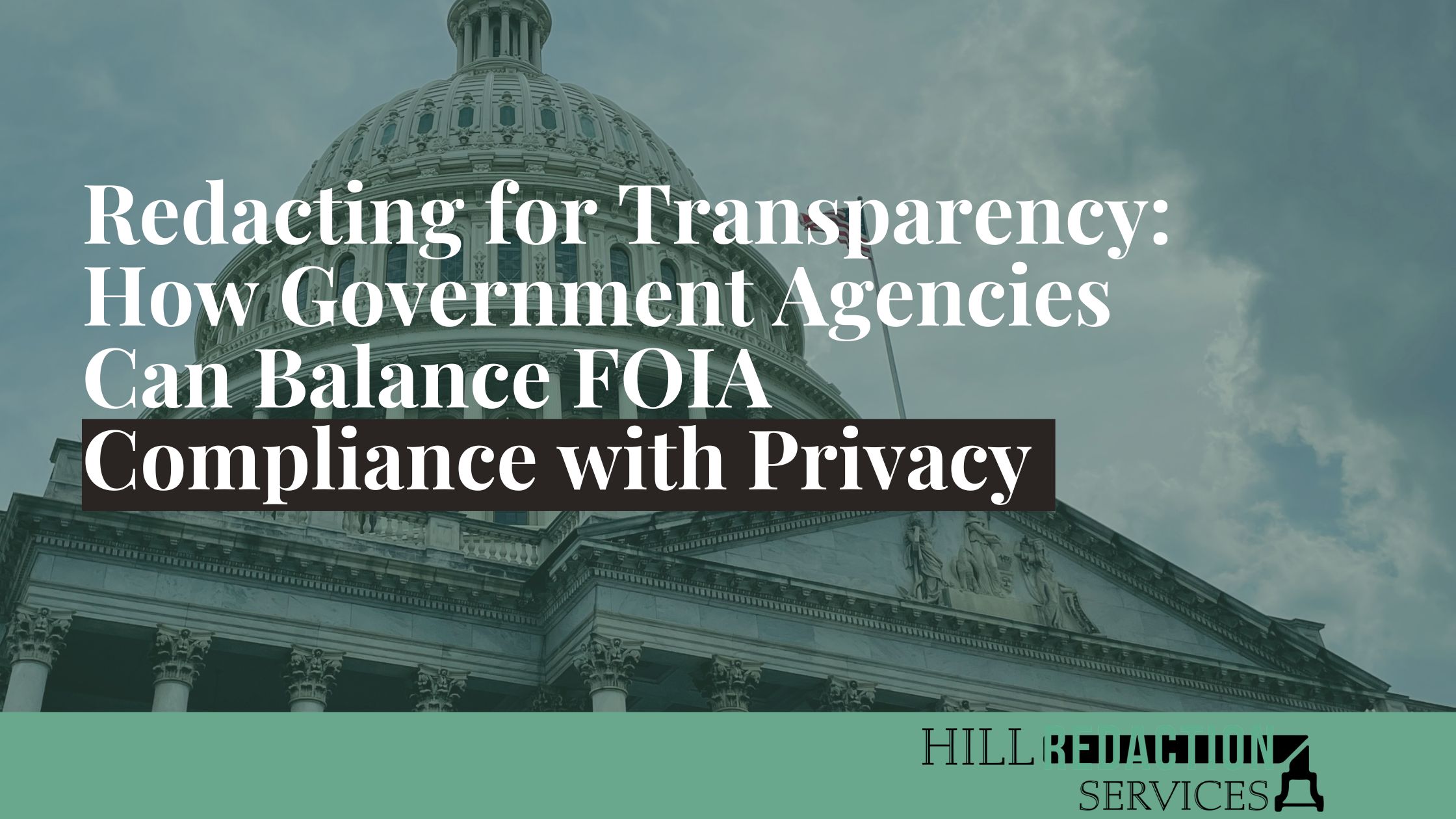
Protecting Commercially Confidential Information While Ensuring Public Access
Government agencies often handle sensitive business information. Laws like the federal Freedom of Information Act (FOIA) and New Jersey’s Open Public Records Act (OPRA) create two paths: ensuring public transparency and safeguarding business interests. What is the middle ground?
Key Areas for Redacting CCI
Government Contracts & Bidding Information
Businesses in industries like utilities and construction rely on government contracts. However, these contracts often contain sensitive details, such as pricing models or bidding strategies. Both FOIA and OPRA include exemptions that allow for the redaction of this information to prevent competitive harm while still complying with the law’s transparency requirements.
Environmental Data
Organizations involved in energy production or resource extraction must report on their operation’s environmental impact. While FOIA and OPRA ensure the public can access this important information, they also allow for the redaction of proprietary commercial details—such as company-specific technologies or processes—that might give competitors an unfair advantage.
National Security Data
Companies involved in defense and cybersecurity often submit sensitive information about technologies, security measures, and systems. If this data were publicly disclosed, it could jeopardize the security of government facilities and compromise a company’s position in its field. FOIA allows for the redaction of national security-related information to protect against such risks.
Patent Filings and Licensing
Patent applications contain confidential plans or innovations. FOIA mandates transparency in the patenting process, but sensitive details, such as specific research findings or development data, may be redacted to protect against unauthorized use if publicly released.
Financial Data in Government Reports
Financial institutions or businesses, such as those undergoing acquisitions, may need to submit economic reports to government agencies to track economic health and prevent fraud. These reports may include sensitive financial information, such as revenue models or market strategies. This data may be redacted while still allowing public access to information that could impact the economy.
Grant Applications and Real Estate Partnerships
When businesses apply for government grants or engage in public-private partnerships, they may disclose financial projections or trade secrets. Redaction helps to protect this while ensuring that essential information—such as the use of taxpayer money or potential changes in the community that may be more visible—remains accessible.
Balancing Compliance and Confidentiality
At Hill Redaction Services, we specialize in helping government agencies navigate the complexities of public records requests under FOIA and state-specific regulations. Our expertise ensures that sensitive information is redacted following legal exemptions, protecting national security, business interests, and economic stability while ensuring public transparency. Call or fill out our form to get started.
Related Posts

Protecting Commercially Confidential Information While Ensuring Public Access
Government agencies often handle sensitive business information. Laws like the federal Freedom of Information Act (FOIA) and New Jersey’s Open Public Records Act (OPRA) create two paths: ensuring public transparency and safeguarding business interests. What is the middle ground?
Key Areas for Redacting CCI
Government Contracts & Bidding Information
Businesses in industries like utilities and construction rely on government contracts. However, these contracts often contain sensitive details, such as pricing models or bidding strategies. Both FOIA and OPRA include exemptions that allow for the redaction of this information to prevent competitive harm while still complying with the law’s transparency requirements.
Environmental Data
Organizations involved in energy production or resource extraction must report on their operation’s environmental impact. While FOIA and OPRA ensure the public can access this important information, they also allow for the redaction of proprietary commercial details—such as company-specific technologies or processes—that might give competitors an unfair advantage.
National Security Data
Companies involved in defense and cybersecurity often submit sensitive information about technologies, security measures, and systems. If this data were publicly disclosed, it could jeopardize the security of government facilities and compromise a company’s position in its field. FOIA allows for the redaction of national security-related information to protect against such risks.
Patent Filings and Licensing
Patent applications contain confidential plans or innovations. FOIA mandates transparency in the patenting process, but sensitive details, such as specific research findings or development data, may be redacted to protect against unauthorized use if publicly released.
Financial Data in Government Reports
Financial institutions or businesses, such as those undergoing acquisitions, may need to submit economic reports to government agencies to track economic health and prevent fraud. These reports may include sensitive financial information, such as revenue models or market strategies. This data may be redacted while still allowing public access to information that could impact the economy.
Grant Applications and Real Estate Partnerships
When businesses apply for government grants or engage in public-private partnerships, they may disclose financial projections or trade secrets. Redaction helps to protect this while ensuring that essential information—such as the use of taxpayer money or potential changes in the community that may be more visible—remains accessible.
Balancing Compliance and Confidentiality
At Hill Redaction Services, we specialize in helping government agencies navigate the complexities of public records requests under FOIA and state-specific regulations. Our expertise ensures that sensitive information is redacted following legal exemptions, protecting national security, business interests, and economic stability while ensuring public transparency. Call or fill out our form to get started.






